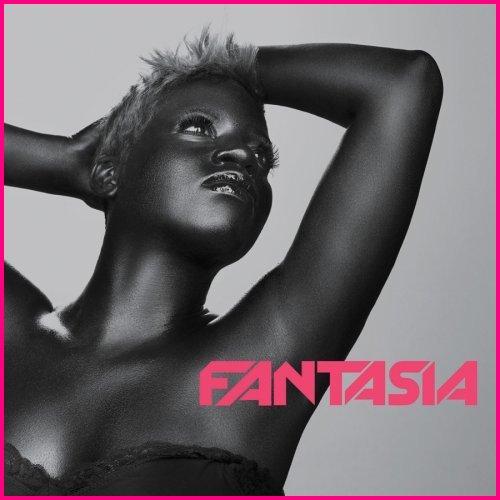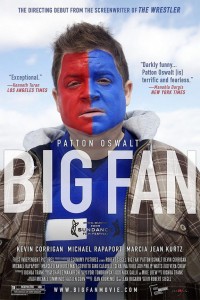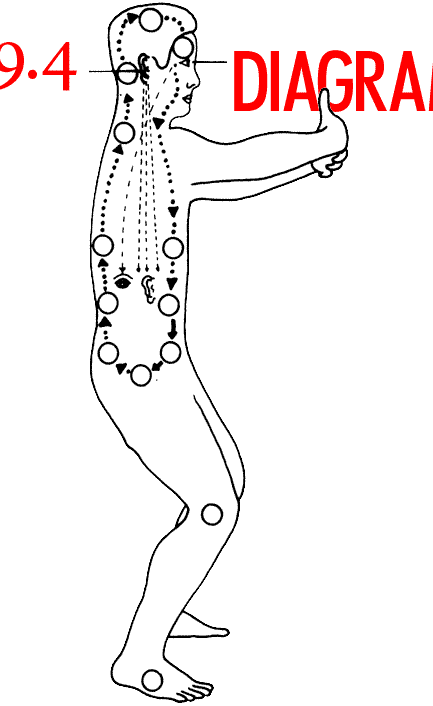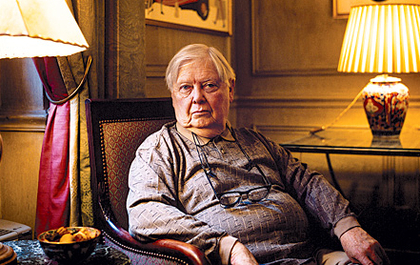Editors with ‘Intentions’

I’d like to hear some stories about people’s experiences with editors who use their position of personal contact as a way to flirt or otherwise sexually provoke the writers that submit to them. Seems like I can think of a bunch of male editors who I have seen show a tendency for this even in just their outward blogging stances, and I am interested to think about it more. I would say I’d include female editors in this but I have not seen that happen.
Anyhow, has anyone run into a situation like this? Where it seemed the editor was using his or her ‘power’ to try to elicit more out of the relationship than just literature? Any uncomfortable or strange interactions? How do these things begin, play out? Feel free to post anonymously, or use alternate names, if you feel like keeping it private. But I’m really interested.
Working Definitions?

Poetry can thus be defined as the art of language, as distinguished from fiction which is the art of written narrative, from drama, the art of theatrical narrative, or from the essay, the art of written rhetoric.
There are only two modes in which any genre can be written, prose and verse. Prose is unmetered language; verse is metered language. Any of the genres can be written in either of the modes; that is, there are prose narratives and verse narratives, prose dramas and verse dramas, prose essays and verse essays. Likewise, there are prose poems and verse poems.
There is, thus, only one logical answer to the question “What is the difference between poetry and prose?” Poetry is a genre, and prose is a mode.
–from pages 4-5 of The New Book of Forms: A Handbook of Poetics (1986) by Lewis Turco
“Hope is the promise of a crucifixion.”

So wrote Benjamin De Casseres–a lost legend of the early/mid-20th–a man about whom I knew nothing until today, when I read the latest Tabletmag.com piece by the great Joshua Cohen (whose “Bridge & Tunnel (& Tunnel & Bridge)” will be out from The Cupboard Pamphlet later this year). Here’s a little taste of the article. Click-thru anywhere below for smorgasbord.
Hey, I got a rejection a couple of days ago!
httpv://www.youtube.com/watch?v=pWStaRmuXzY
I kind of like rejections, now. I have gotten so many they no longer really cut my heart out like they did at the beginning. But, you know.
How do you feel about rejection?
Not the spurs, Cormac!
 What would you do if your favorite author (living) punched you right in your face, and then beat you into a coma for good measure? Sue? Have them put in prison, where they might not ever write again? Or pretend like it didn’t happen, in the hope that said violent wordsmith would continue to produce uninterrupted the works that you love so much?
What would you do if your favorite author (living) punched you right in your face, and then beat you into a coma for good measure? Sue? Have them put in prison, where they might not ever write again? Or pretend like it didn’t happen, in the hope that said violent wordsmith would continue to produce uninterrupted the works that you love so much?
This is the position in which Patton Oswalt’s character finds himself in his new, fantastic film of loserdom and obsession, Big Fan. Kudos also belong to Michael Rapaport, for his spot-on portrayal of a loudmouth Eagles diehard.
August 31st, 2009 / 1:13 pm
Diagram Summer All-Fiction Issue
 It’s one of the things I look forward to every year: Diagram’s badass and always mindbending gathering of finalists and winner of their annual $5 innovative fiction issue. The 2009 batch has just gone live, and this year marks another slew of things to stare at open in my web browser while I write my owns, including words by many new-to-me names: August Tarrier, Erica W. Adams, Michael Argest, Kristina Born, Micah Nathan, Lito Elio Porto, Nathania Rosenfeld, Rhodes Stevens, and Jenny Zhang.
It’s one of the things I look forward to every year: Diagram’s badass and always mindbending gathering of finalists and winner of their annual $5 innovative fiction issue. The 2009 batch has just gone live, and this year marks another slew of things to stare at open in my web browser while I write my owns, including words by many new-to-me names: August Tarrier, Erica W. Adams, Michael Argest, Kristina Born, Micah Nathan, Lito Elio Porto, Nathania Rosenfeld, Rhodes Stevens, and Jenny Zhang.
Big highlight for me is a new long-ish text from heartthrob Kristina Born (yes, Shane Jones and I are releasing her debut book later this year, take a look!). Check out this sample graph from this fine show of freak:
The Gilmore Commission
Holograms can kill a man. Unlike linear images, which are easily sidestepped, literally. A threadlike sports car races by the locked glass doors. Since early childhood, Jack Twig, it has been your job to know the difference. (You said: the difference is it’s a psychological difference.) Mother and I have been losing our sight for quite some time. Even now, Teddy proposes a game of hangman and she declines, murmuring, patting her hands on her cheeks. Look at her. She is not afraid to die but of almost every other thing. Sometimes I wonder, Who can think without horror on death and the life beyond? and I know it is only my wife and only because her eyeballs are falling out. Sometimes I wonder, When comes the mutually assured destruction promised us by our greatest nations? Jack Twig, take a look for me: I think I still have some extremely deteriorated nerve agent buried in the yard.
I XOX her to death. Read the rest of this brilliant piece: Jack Twig is the Evil Pulse of Canada.
The rest is all as grand as well and a big gleam. Diagram continues to be, to me, one of, if not THE, best web journal around.
August 31st, 2009 / 12:57 pm
Massive People (12): Samuel Ligon
 Samuel Ligon is most recently the author of the story collection Drift and Swerve, as well as the novel Safe In Heaven Dead. His stories have appeared in The Quarterly, Alaska Quarterly Review, StoryQuarterly, New England Review, Noise: Fiction Inspired by Sonic Youth, Post Road, Keyhole, Sleepingfish, Gulf Coast, and elsewhere. He is also the editor of the most excellent Willow Springs, and teaches at Eastern Washington University’s Inland Northwest Center for Writers, in Spokane, Washington.
Samuel Ligon is most recently the author of the story collection Drift and Swerve, as well as the novel Safe In Heaven Dead. His stories have appeared in The Quarterly, Alaska Quarterly Review, StoryQuarterly, New England Review, Noise: Fiction Inspired by Sonic Youth, Post Road, Keyhole, Sleepingfish, Gulf Coast, and elsewhere. He is also the editor of the most excellent Willow Springs, and teaches at Eastern Washington University’s Inland Northwest Center for Writers, in Spokane, Washington.
Beyond all that, Sam is simultaneously one of the most laid back and yet enthusiastic editors I’ve ever had the pleasure of meeting. He is, above all else, an excellent person, while also managing to be a hell of a writer. He seems to me a model for what a person in the world of language should be: courageous and yet open minded, enthusiastic and yet no nonsense, giving, attentive, rad. Wise blood, as it were, and most certainly a massive person.
Over the past few weeks I had the pleasure of talking with Sam over email about his new collection, his inspiration, music, the influence of Willow Springs on his work, and much more.
I’ve been obsessed with this song for like 3 weeks now and don’t see it letting up
Specifically, the version on Live Rust, but this version from Hamburg ’96 (~28 years later) is pretty great too.
httpv://www.youtube.com/watch?v=jdUC_GU4hYw
Paragraphs That Make Me Warm (6): William Gass

Now the horse was quiet and we were breathing careful and if the wind had picked up we couldn’t hear it or any snow it drove. It was warmer in the barn and the little light there was was soft on hay and wood. We were safe from the sun and it felt good to use the eyes on quiet tools and leather. I leaned like Hans against the wall and put my gun in my belt. It felt good to have emptied that hand. My face burned and I was very drowsy. I could dig a hole in the hay. Even if there were rats, I would sleep with them in it. Everything was still in the barn. Tools and harness hung from the walls, and pails and bags and burlap rested on the floor. Nothing shifted in the straw or moved in hay. The horse stood easy. And Hans and I rested up against the wall, Hans sucking in his breath and holding it, and we waited for Pa, who didn’t make a sound. Only the line of sun that snuck under him and lay along the floor and came up white and dangerous to the pail seemed a living thing.
– from ‘The Pedersen Kid’ in In the Heart of the Heart of the Country, pg. 60
